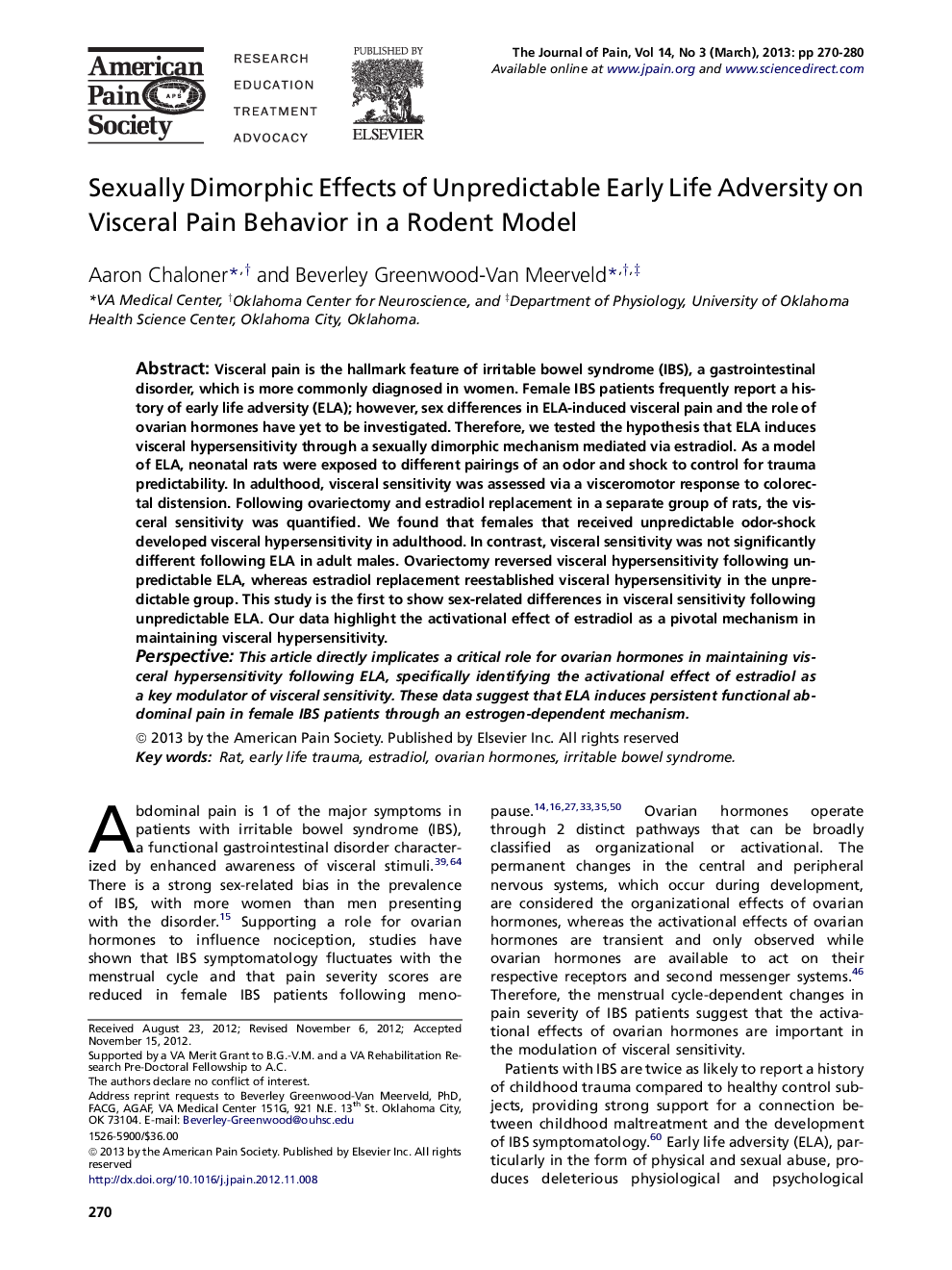| Article ID | Journal | Published Year | Pages | File Type |
|---|---|---|---|---|
| 2733986 | The Journal of Pain | 2013 | 11 Pages |
Visceral pain is the hallmark feature of irritable bowel syndrome (IBS), a gastrointestinal disorder, which is more commonly diagnosed in women. Female IBS patients frequently report a history of early life adversity (ELA); however, sex differences in ELA-induced visceral pain and the role of ovarian hormones have yet to be investigated. Therefore, we tested the hypothesis that ELA induces visceral hypersensitivity through a sexually dimorphic mechanism mediated via estradiol. As a model of ELA, neonatal rats were exposed to different pairings of an odor and shock to control for trauma predictability. In adulthood, visceral sensitivity was assessed via a visceromotor response to colorectal distension. Following ovariectomy and estradiol replacement in a separate group of rats, the visceral sensitivity was quantified. We found that females that received unpredictable odor-shock developed visceral hypersensitivity in adulthood. In contrast, visceral sensitivity was not significantly different following ELA in adult males. Ovariectomy reversed visceral hypersensitivity following unpredictable ELA, whereas estradiol replacement reestablished visceral hypersensitivity in the unpredictable group. This study is the first to show sex-related differences in visceral sensitivity following unpredictable ELA. Our data highlight the activational effect of estradiol as a pivotal mechanism in maintaining visceral hypersensitivity.PerspectiveThis article directly implicates a critical role for ovarian hormones in maintaining visceral hypersensitivity following ELA, specifically identifying the activational effect of estradiol as a key modulator of visceral sensitivity. These data suggest that ELA induces persistent functional abdominal pain in female IBS patients through an estrogen-dependent mechanism.
